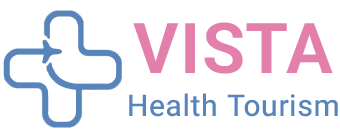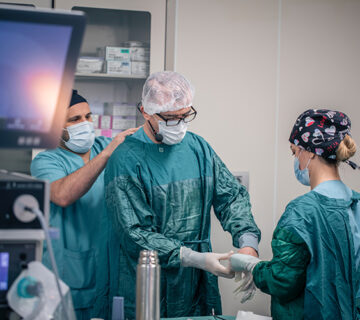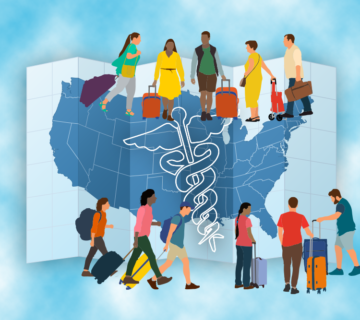Introduction
Technology has revolutionized numerous industries, and health tourism is no exception. The integration of modern technology into healthcare has significantly enhanced the quality, accessibility, and affordability of medical and wellness services across the globe. From telemedicine to advanced diagnostic tools, technology has made health tourism easier, more efficient, and more accessible for people seeking medical treatment abroad. In this article, we will explore the role of technology in advancing health tourism, how it benefits patients, and the emerging technologies that are shaping the future of this growing industry.
1.Telemedicine: Connecting Patients and Doctors Across Borders
Telemedicine is one of the most important technological advancements in the health tourism industry. With telemedicine, patients can consult with doctors and specialists remotely, eliminating the need for face-to-face appointments. This technology allows patients to receive expert advice and medical consultations from the comfort of their homes, whether they are at home or traveling abroad.
For health tourists, telemedicine offers a way to have initial consultations, discuss medical options, and receive follow-up care without having to return to the treatment destination. This is especially beneficial for patients who need ongoing monitoring or advice after receiving medical treatment abroad.
Tip: If you plan to travel abroad for medical treatment, check if the hospital or clinic offers telemedicine services for follow-up care or consultations before traveling.
Example: Patients who undergo cosmetic surgery in countries like Thailand or Mexico often use telemedicine for post-surgery follow-up consultations, allowing them to communicate with their doctors from home.
2.Health Monitoring Devices: Empowering Patients with Real-Time Data
Wearable health monitoring devices, such as smartwatches and fitness trackers, have become increasingly popular among health-conscious individuals. These devices allow users to track their heart rate, blood pressure, sleep patterns, and other vital statistics in real time. This data can be shared with healthcare providers, helping doctors monitor a patient’s health remotely and make informed decisions.
For health tourists, wearable devices can play a crucial role in monitoring recovery after medical treatments. For example, patients who undergo surgery abroad can use these devices to track their progress, ensuring they are healing properly and identifying any potential complications early.
Tip: Consider using health monitoring devices during your health tourism journey to stay on top of your recovery progress and share valuable data with your healthcare providers.
Example: After undergoing weight loss surgery in Mexico, many patients use wearable health devices to track their activity levels, calorie intake, and overall health, sharing the data with their surgeons for personalized care.
3.Artificial Intelligence (AI) and Robotics: Enhancing Medical Procedures
The use of Artificial Intelligence (AI) and robotics in healthcare has been a game-changer for many medical procedures. AI algorithms can analyze patient data to assist in diagnosis, identify patterns, and predict potential health risks. Additionally, robotic systems are increasingly used in surgeries, allowing for more precise and minimally invasive procedures.
These technologies not only improve the efficiency of medical treatments but also enhance the quality of care provided to patients. For health tourists, the use of AI and robotics means access to cutting-edge medical treatments, with improved accuracy and faster recovery times.
Tip: Research destinations that use AI and robotic systems in their medical procedures to ensure you receive the most advanced and precise care available.
Example: South Korea is a leader in the use of robotic surgery for procedures like spine surgery and orthopedic treatments, providing patients with highly accurate and minimally invasive options.
4.Digital Health Platforms: Streamlining the Patient Journey
Digital health platforms, such as online booking systems, patient portals, and medical tourism websites, have made it easier for patients to access information and book medical treatments abroad. These platforms provide patients with valuable resources, including the ability to compare medical facilities, read patient reviews, and communicate with doctors.
Health tourism destinations are increasingly adopting digital platforms to streamline the entire patient journey, from booking appointments to organizing travel logistics. These platforms help patients feel more informed and in control of their healthcare choices, reducing the stress associated with traveling for treatment.
Tip: Use digital health platforms to research potential treatment options and book your medical appointments with trusted hospitals or clinics. Look for platforms that offer a variety of services, from consultations to travel arrangements.
Example: Websites like Medical Departures and Healthbase provide patients with detailed information on medical providers in popular health tourism destinations, making it easy to book medical procedures and accommodations online.
5.Virtual Reality (VR) and Augmented Reality (AR): Improving Patient Experience and Training
Virtual Reality (VR) and Augmented Reality (AR) are emerging technologies that are transforming both patient experiences and medical training. In the context of health tourism, VR and AR can be used for pre-surgery simulations, providing patients with a virtual walk-through of their procedures. This helps patients understand what to expect and reduce anxiety.
Moreover, AR is increasingly being used in medical training, allowing surgeons and healthcare providers to practice procedures in a virtual environment before performing them on actual patients. This technology improves the accuracy and safety of medical procedures, benefiting health tourists who seek high-quality care abroad.
Tip: Ask medical providers if they use VR or AR technology to enhance the patient experience or assist in complex procedures to ensure you’re receiving the best care possible.
Example: In Singapore, many hospitals use VR simulations to help patients visualize complex surgeries, reducing anxiety and helping them make informed decisions about their treatment options.
6.Blockchain Technology: Ensuring Secure and Transparent Medical Records
Blockchain technology, known for its use in cryptocurrencies, is gaining traction in healthcare as a way to ensure the security and privacy of medical records. In health tourism, blockchain can be used to store and manage patient records securely, allowing healthcare providers to access up-to-date and accurate information regardless of the patient’s location.
For international patients, blockchain ensures that their medical data is securely shared between providers and accessible across borders, improving the continuity of care. This technology also helps prevent medical fraud and ensures that patients’ data is protected throughout the treatment process.
Tip: Look for healthcare providers that use blockchain technology to manage medical records, ensuring that your data is kept secure and private while you travel for treatment.
Example: Estonia is one of the pioneers in using blockchain technology for healthcare, offering secure digital health records that patients can access and share with healthcare providers worldwide.
7.Robotic Assistance for Travel and Logistics
Technology also plays a significant role in the logistics of health tourism. Robotic systems and AI-powered tools are increasingly being used to assist with patient transportation, hotel bookings, and even recovery programs. Automated systems can help patients manage their travel arrangements, book accommodations, and find support services, all of which contribute to a smoother experience.
These technologies help reduce the stress of traveling for medical procedures by providing seamless and efficient travel and recovery logistics.
Tip: Consider using AI-driven travel platforms that help you book flights, accommodations, and medical services all in one place, ensuring a stress-free experience from start to finish.
Example: Companies like Health and Wellness Travel offer personalized travel packages that include AI-assisted planning for medical procedures, accommodations, and post-care services.
Conclusion
Technology is playing a pivotal role in transforming the health tourism industry by improving the quality, accessibility, and affordability of medical and wellness services. From telemedicine and wearable health devices to AI and blockchain technology, advancements are making it easier for patients to access high-quality care, monitor their health, and ensure a seamless experience. As technology continues to evolve, the future of health tourism looks even more promising, offering enhanced services, improved outcomes, and a smoother journey for medical travelers around the world.




No comment